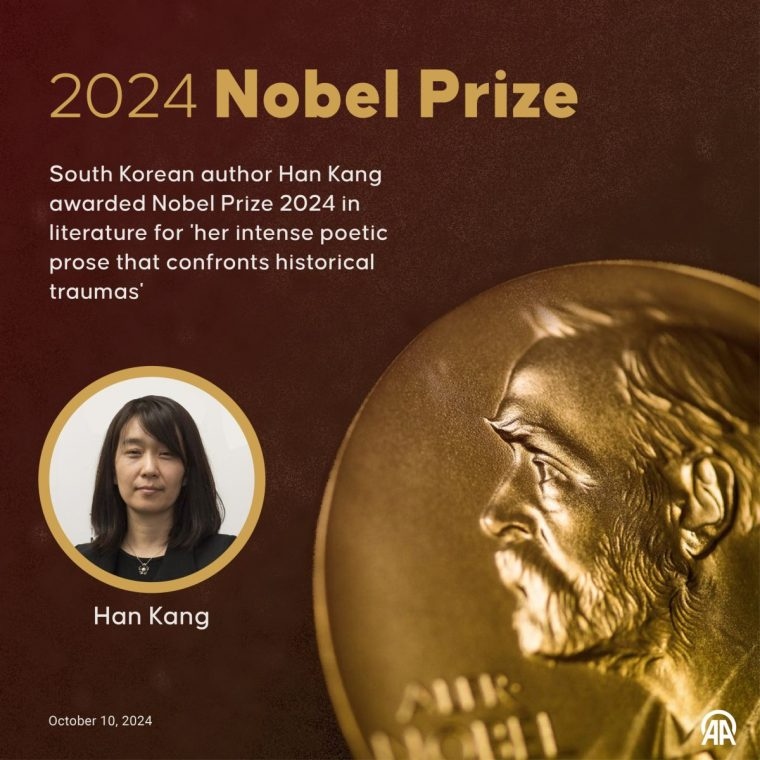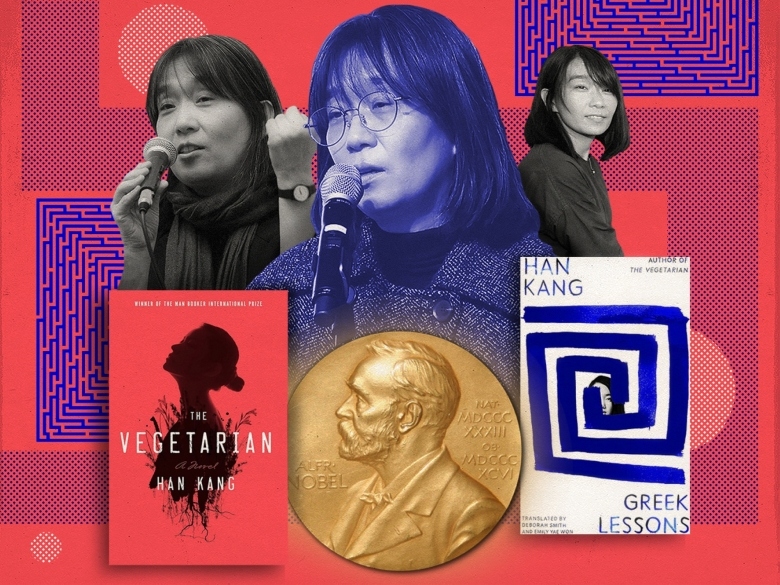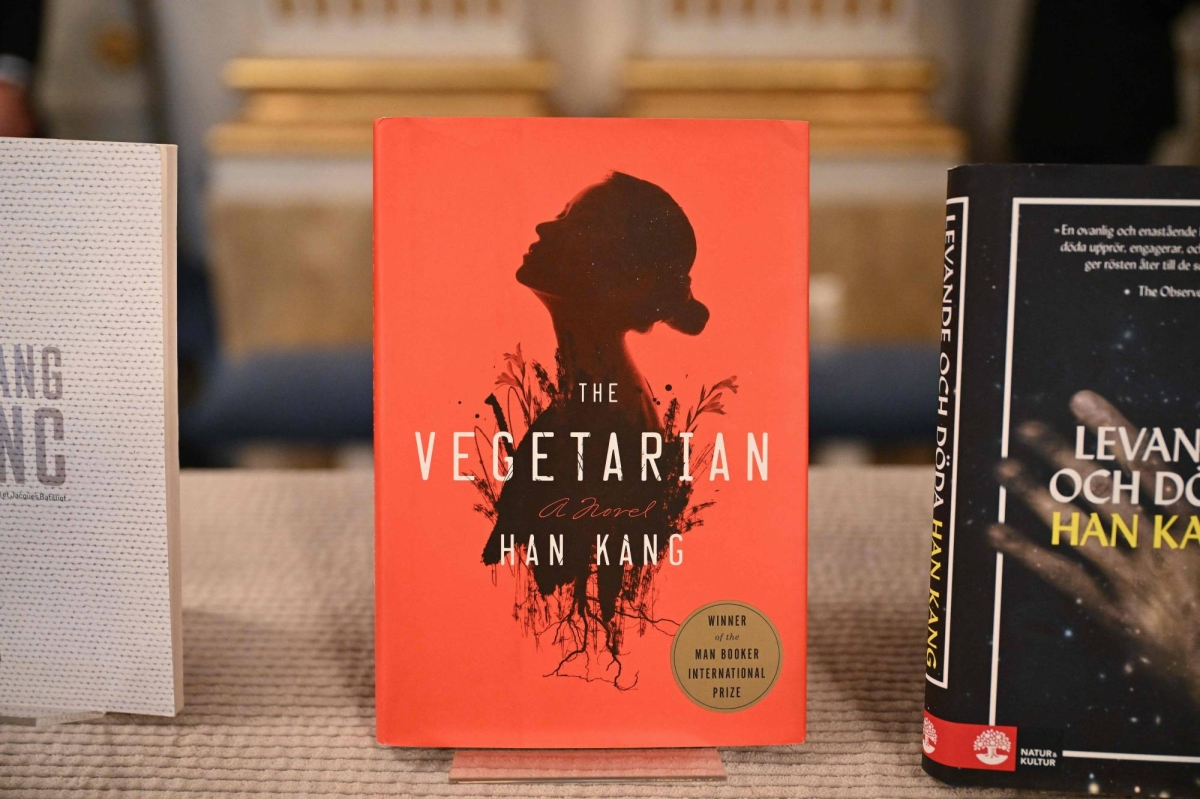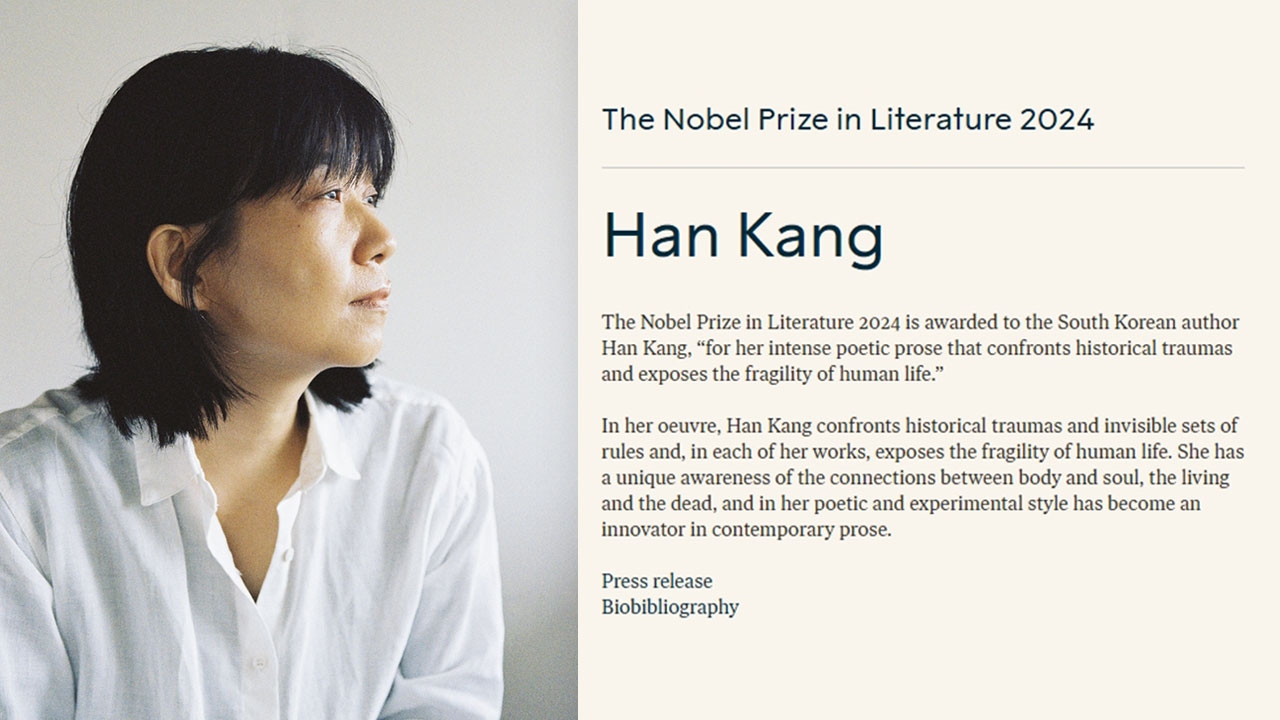
Novelist Han Kang
Novelist Han Kang Achieves Historic Milestone as the First Korean to Win the Nobel Prize in Literature!
Hello! Today, I have some truly exciting news to share. Recently, our country’s novelist Han Kang has been awarded the Nobel Prize in Literature, making her the first Korean to achieve this honor! I’m so thrilled about this news that I want to discuss novels and literature with you. I think it would be great to talk about Han Kang’s works together!

Introduction to Han Kang
Han Kang is a modern Korean novelist born in Seoul in 1970, known for her unique writing style and profound themes. Her major works include “The Vegetarian,” “White,” and “Boys Come,” which explore Korean society, individual inner worlds, and the essence of human existence. Han Kang is an author who closely connects art and life, delivering stories that evoke deep empathy in readers. She has received numerous literary awards both domestically and internationally, and her works have been translated into various languages, increasing her global recognition. In this context, Han Kang plays a crucial role in promoting Korean literature worldwide.

What is the Nobel Prize in Literature?
The Nobel Prize in Literature is an international literary award given annually to authors who have made outstanding contributions to literature. Established in 1901 according to Alfred Nobel’s will, this award is conferred upon writers who have contributed to the development of literature and humanity. Recipients are recognized for their exceptional writing style, creativity, and ability to convey social messages in an original manner. Winning the Nobel Prize in Literature significantly boosts a writer’s fame, and their works gain worldwide attention. Recipients also exert considerable influence in the literary world, providing opportunities to re-examine the value of literature. For these reasons, the Nobel Prize in Literature is regarded as a highly prestigious award in literary history.

Exploring Han Kang’s Literary World
Han Kang’s literary world primarily explores the inner lives of individuals and social conflicts, with her original language and profound themes prompting deep reflection in readers. In her representative work “The Vegetarian,” she addresses personal identity and conflict through a tragic family relationship, delivering a powerful message that critiques societal norms. Additionally, “Boys Come” encapsulates the voices of those forgotten in modern Korean society, narrating the remnants of history. With a sharp perspective, Han Kang explores the essence of existence and connects the past with the present, providing readers with profound emotional experiences. Her works are designed to allow for diverse interpretations through experimentation with language and form.

Background and Reasons for the Award
Han Kang’s Nobel Prize in Literature was awarded due to her unique literary contributions and deep social messages. The judges highly praised her ability to intricately portray inner conflicts and social tensions in her works, particularly noting “The Vegetarian,” which received international attention. This work contains a powerful message about women’s self-exploration and social oppression, reflecting universal concerns of modern individuals. Through these themes, Han Kang has opened new horizons for Korean literature and firmly established Korea’s voice in global literature. Her award has elevated the previously unrecognized value of Korean literature, positively impacting future literary achievements.

The Global Status of Korean Literature
Korean literature has experienced a rise in international status following Han Kang’s Nobel Prize win. Her works are translated into various languages and read worldwide, providing opportunities for Korean authors to influence the global literary scene. One of the characteristics of Korean literature is the harmony between tradition and modernity, which appeals to diverse readerships. Additionally, several other Korean authors are gaining recognition in global literary awards, showcasing the rich identity of Korean literature. As a result, Korean literature is now occupying an essential place in the global literary arena, no longer limited to the domestic market.

Han Kang’s Acceptance Speech and Interviews
In her acceptance speech for the Nobel Prize in Literature, Han Kang expressed her deep emotion at the realization that her works could have an impact on the world. She reflected on the power of language and the role of literature, hoping that people would have opportunities to understand and connect with each other through literature. In interviews, she emphasized that her works contain diverse voices from Korean society and expressed her strong intention to continue exploring these themes. Han Kang reiterated the importance of literature as a tool for not only personal healing but also fostering social dialogue. Her humble demeanor and deep insights inspire many.

Impact and Expectations of the Nobel Prize Win
Winning the Nobel Prize has had many positive effects on Han Kang, leading to a surge in interest in her works. This award opens up opportunities for Korean literature to receive greater attention in the global literary community, which will positively influence other Korean authors as well. Han Kang is now invited to cultural events and literary festivals worldwide, expanding her voice across various platforms. Moreover, her award redefines the value of Korean literature and serves as an inspiration for young writers. As this trend continues, the future of Korean literature is expected to be more diverse and internationally oriented.

The Future of Korean Literature After Han Kang
Following Han Kang’s Nobel Prize win, Korean literature is entering a new turning point. Her success motivates the next generation of writers and enhances the possibility of Korean literature being recognized on the global stage. Young authors are addressing social issues through diverse themes and forms, further strengthening the diversity of Korean literature. Independent publishing and various literary events continue this momentum, creating new currents in Korean literature. Therefore, Korean literature is anticipated to evolve further and establish itself as a significant literary genre with global influence.



